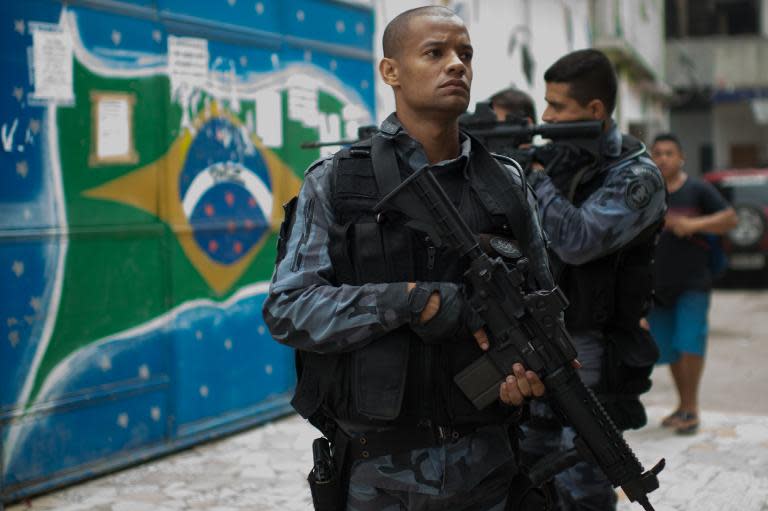Police take over from military at Rio slum near airport
Despite a recent upsurge in urban violence, Rio de Janeiro officials insisted Wednesday they will manage to pacify slum areas in the run-up to next year's Olympics. Gang warfare saw three people killed and 22 wounded by stray bullets in January. Last weekend, six people including two police officers, were hurt in clashes in the Rocinha slum overlooking some of Rio's chicest districts. Police killed four suspects in two more slums, known as favelas, and reported that 100 firearms had been seized since the turn of the year. Yet, despite the ongoing violence, authorities believe a program started seven years ago to bring peace to the favelas is bearing fruit. On Wednesday, Brazilian soldiers began to withdraw from one sprawling group of slums, a year after being deployed to help clean up the neighborhood ahead of last year's World Cup and South America's first ever Olympiad. An estimated 3,000 soldiers were initially sent a year ago into Mare, a group of 16 slums near Rio's international airport and home to some 140,000 people. The military operation was part of a strategy rolled out across the city to ramp up security in an area prone to gang warfare and drug trafficking. Now they are handing back responsibility for law and order to military police. "We started with the Praia de Ramos and Roquette Pinto favelas, which are the quietest," military police colonel Frederico Caldas told AFP as troops began a phased withdrawal which will wrap up in June. By June, four so-called Police Pacification Units (UPPs) will be established in Mare comprising 1,620 police officers, "a figure which could change as needs dictate," Colonel Caldas said. He insisted that if the program does not succeed then "everyone will lose out." After winning the right to stage two showpiece international sports events the city government in 2008 launched a coordinated attempt to "pacify" favelas in thrall to drug traffickers for decades. By last year they had stationed some 10,000 police at 38 UPPs set up in 264 favelas home to around 1.5 million people. Rio state security secretary Jose Mariano Beltrame said Tuesday the state government had a duty to weed out areas subjected to decades of gang violence. Raimundo Donato, a 57-year-old lorry driver living in Praia de Ramos said he was optimistic. "Things will improve with the arrival of the UPPs -- it's really going to get better," he told AFP.



